What is UX, and is it important?
The single most important tool in UX... is the User.
I know this sounds like a simplification but it is surprising to me how many "UX designers” , have never conducted a single user study.
When I first got into UX and usability I realized that the term "UX" was hot. In the early years of usability research, just having these two letters on your resume could drive you to the top of any short list.
When I started with usability I was actually considering psychology as a career move. However…I was also really good with computers and, living in Microsoft country, I determined that computer engineers drove better cars than psychologist. I was actually in college when I started looking at the evolution of BEST PRACTICE as a skill set. After one long day in the computer labs, I decided to write a white paper on this new term I found while rabbit holing on the subject of best practice. The term was “UX”.
Shortly after publishing the paper to my college website to share with my class and professors, I was hit by dozens of meeting requests from technical recruiters that wanted me to come talk to their staff on this new topic. UX had suddenly become the buzz word of the house and one of the agencies really knew how to place, hire, or even find a usability expert.
Obviously I wasn’t taking credit for discovering UX - I just happened to be in the right place, at the right time, and it help me to capitalize on a topic that was in demand.
As the skill became more common place, people began to realize that by simply calling themselves usability experts, they would get an interview. UX was showing up on everyone's resume. This causes a lot of confusion with companies and, for a time, usability was just something companies knew they needed but had no idea how it fit into their program. No one new how to deal with this flood of ux providers when the truth was - many had no experience in the field of study.
Today, UX as a skill is much better defined
Many years have passed since those early days. I currently look at the term UX as a more fluid and evolving term.
Let me clarify...
USER EXPERIENCE is very specific in that it deals with the Users Experience. However, through the years we have moved from the idea that we must design a website based on known patterns, to a place in which we are shaping the patterns that change the ways customers interact with a product. In a perfect world, I feel that design is forgettable in that the customer takes delight in the success of engagement …without realizing how they got there.
While most UX people I meet have different views and skill sets, they are all concerned with the same thing... User engagement. I feel like the term UX was really a general term to encompass how people interacted with various systems. I still use that as a (vague) explanation of what I do for a living. However, as time moves on, I see UX taking shape and branching out into more specific fields of study - ALL... under the same field of how humans interact with various systems.
Today, I see people being more specific with their title. You are no longer a UX expert. You are a UX designer, UX Engineer, a UX researcher... I even recently took the title of Usability architect.
SO - What does this all mean? Isn't it further abuse of an already misunderstood term?
Perhaps - But perhaps it is the evolution of an understanding of what it means to engage a user. It is still paramount that we understand the wants and needs of our user base, but it is also fair to understand that usability is a common thread that follows a product from concept to completion. Usability is the foundation we build upon. AND, as such, maybe the division of UX into a variety of disciplines is simply the next step. Again - this is just me trying to play with some thoughts on what I am seeing in the industry All of the below items are under the umbrella of UX but there are very different skills involved in each:
STRATEGY PHASE: We do our research and plan for the problem we wish to solve. We understand what we are trying to improve and engage users to see how best to do it. Define what Success looks like.
Possible UX skills: UX RESEARCH, UX ARCHITECT
SCOPE PHASE: Consult with project managers and stake holders to prioritize goals, create functional specs, understand business requirements based on user needs. This allows us to plan key points where we can stop and review to ensure we are on target with user needs.
Possible UX skills: UX RESEARCH, UX ARCHITECT
STRUCTURE PHASE: We begin to lay out the Interaction design, information architecture, roles and process. Things begin to take shape and new questions arise that need solutions.
Possible UX skills: UX RESEARCH, UX ARCHITECT
FRAMEWORK PHASE: Interface and navigation design - wire frame and annotations.
Possible UX skills: UX RESEARCH, UX ARCHITECT, UX DESIGN
PAINT/DESIGN PHASE: Visual branding, contrast and uniformity, color and typography.
Possible UX skills: UX RESEARCH, UX ARCHITECT, UX DESIGN
PROTOTYPE PHASE: Working front end design with FED code hand-off.
Possible UX skills: UX ARCHITECT, UX DESIGN, UX ENGINEER
OK, Maybe...Maybe not...
It is not my intent to mislead anyone that is reading this blog. Usability, as I stated in the beginning, MUST INCLUDE THE USER... I stand by the fact that usability without user data or research, is simply an educated guess/opinion. I am also open to the possibility that UX may evolve as it becomes better understood. While there is a common thread in all definitions mentioned above, the skills involved in each UX process, are very different and deserve consideration. If there is one thing I have learned in the last 20 years of working in the tech sector, it is that things move at the speed of life. What is big today, may be old news tomorrow. If we are not flexible and able to look outside the box occasionally, we stand the risk of being lost at sea.


